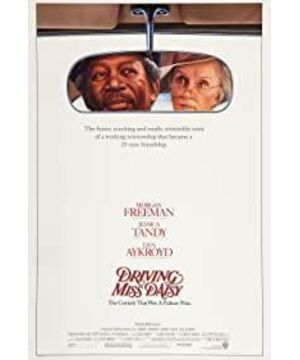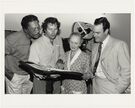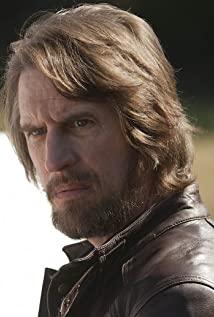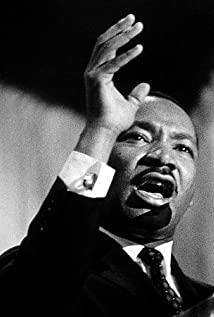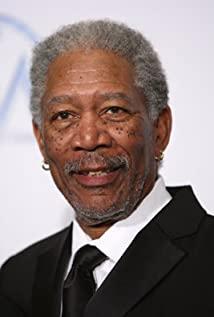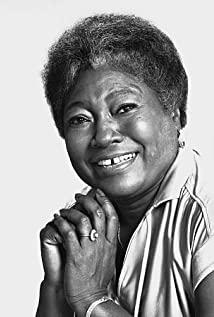Alfred Yuri’s original play has won a Pulitzer Prize. The original play only has three characters, Daisy, Hawke, and Bully, and a set of Daisy’s house. The adaptation has broadened the background, added characters, and made it. Yang's strength in the film without losing the spirit of the original drama. Although the director Bearsford is Australian, he is familiar with life in the South of the United States. This is his third film based on life in the South of the United States. This film depicts the 25-year-long master-servant relationship between Daisy and Hawke. It shows ordinary daily life, without tortuous plots and ups and downs. It is calm and smooth, but has an extraordinary artistic influence. force. The film is also implicitly loaded with racial discrimination, some of the social problems that are particularly serious in the southern United States. The characters have distinct personalities, the dialogue is clean and witty, the performances are impeccable, the director's techniques are exquisite, and the art is also excellent. In the film, even factory equipment updates, popular model replacements, housing styles, church styles, etc. all reflect the characteristics of the times, local characteristics or national colors, so that the audience is placed in a true and credible environment and background of the times.
Yuri is a descendant of Jewish immigrants in Germany. Although he grew up in "a dilute Jewish environment", he is well aware of the ups and downs of Jewish immigrants' struggle for survival since the 19th century, and is familiar with their unique life circle, unique customs and precepts. , And the gradual Americanization of third-generation immigrants. He lived in the South of the United States as a child, and later engaged in drama education. "Driving for Miss Daisy" is his debut in 1983 when he was 52 years old. It depicts a page of life in the south in his memory. Daisy’s prototype is Yuri’s grandmother and several aunts, while Hawk’s prototype is Will Coleman, the driver who has followed Yuri’s grandmother for many years. Yuri often listened to them telling stories and narrating family history in childhood. Their stories made him enjoy, but they also made him realize that they were stubborn and lacking a sense of humor, insisting on going their own way and never admitting to wrong. He saw noble moral character in Coleman. With these perceptions, when he was shaping Daisy and Hawke, he opened the floodgates of memory and assigned these characters, interpersonal relationships and experiences to roles. What Yuri wants to show is friendship, human dignity, and the needs of the elderly for communication. He used a kind of "extremely common and extremely gentrified Jewish family life in the American South" to express "both the creator and the victim of prejudice." He said: "I never realized how deep a prejudice we harbored in our bones, until I finally got rid of it. We blatantly regarded black people as'another kind of person', in fact there is no'another kind of person' at all. People are people."
Yuri breaks Hollywood’s racial prejudice and puts black people in the protagonist position. He also wants to compare Hawke with Daisy, and deliberately portrays Hawke as “noble, self-respecting, and polite. In many respects, Hawke is far better than Dai. Akane. He is a true philanthropist" (Yuri). This film was supposed to show Hawke. It may be that he is too familiar with Daisy's type of people. Although Hawke has a distinct personality, he was perfect from the beginning. He hasn't developed for many years, and his portrayal of him is not as good as Daisy's. Moreover, Hawke's family and living environment are not involved, only a little explanation in his conversation with Bully or in the conversation with Daisy while driving. Freeman, who plays Hawk, has superb acting skills. In his attitude, the eye contact between the rearview mirror and Daisy, the restrained facial expressions and the rhythm of his gait, he vented his emotions and emotions. Age changes (of course makeup also helped him). He played the same role on stage, on the screen and on the screen. Freeman is from the South, and his father was also a car driver. He believes that Hawke is a synthesis of many people. He "has a kind of out-and-out dignity. If you play him, you must first consider his dignity." Hawke is generous in nature, reasonable, and always considerate of others. He is also optimistic in adversity, never forgets humor, and is still witty. He has repeatedly tolerated Daisy's stubbornness and arrogance, but he is not servile. In the southern society that is extremely unfair to the blacks, he has personally created his own upward, loving and laughable life. Yuri admired Freeman's performance very much, saying that he brought a "mixture of playfulness, dignity and modesty to the character, which is very difficult to express".
Dai Qian is a very comic character. Her wealth and frugality are almost stingy, her stubbornness, her own way, and the resulting innocuous mistakes. She never admits defeat or secretly corrects the contradiction in action. Even the contradiction between her age and her disobedience made the audience laugh. The Daisy portrayed by Tandy attracted the audience from the very beginning. She reversed and had a car accident, but she still held the steering wheel tightly. The hat was crooked and the glasses were off. She tried to see if the handlebar of the car was broken, she pulled out of the purse and got out of the car as if it was okay. It was annoying and ridiculous, but not annoying. Daisy’s experience is a portrayal of Jewish immigrants making a fortune in the South. It is precisely because of her hard work in the past that even raising a cat was a waste of food when she was a child, so although she is rich, she never forgets the past years of poverty and suffering, unlike the Americanization. Bully, let his wife be extravagant. She is opposed to hiring a driver because she does not want to disrupt her daily routine, but she is also afraid that the driver will eat her food for nothing and increase her phone bill. She asked Hawke to drive slowly several times, saying that this was the way her husband taught her to save fuel. She abides by her national customs, lives in the Jewish immigrant circle, goes to the synagogue, and does not give gifts during Christmas (the funny thing is that when she gave Hawke's copybook, she repeatedly stated that it was not a Christmas gift, but asked him to treat the Bully and his wife. Confidential). Her social status at the time has cultivated her suspicious, cautious, weird, and strong character; but she is definitely a strict good teacher, from teaching Hawke to learn Pinyin and encouraging him to read characters, to fear of "not speaking in class when she is unconscious." It’s explained in the true expression that doing homework will disappoint students. She may not be tender, but she is a nostalgic wife. Although her feelings are rarely exposed, her personality is rich and colorful. In short, she exudes various characteristics that have been nurtured by Jewish culture. Daisy's 80-year-old Tandy has only played a supporting role on the screen, but has 64 years of brilliant stage experience. She has historically depicted the subtle changes in body movements and thoughts and feelings brought about by Daisy’s 25 Spring and Autumn Objects. In the last scene, when Hawke feeds her pumpkin pie, her face is like a child-like expression of innocence. It is simply true. The swan song on the performance. As the oldest Oscar winner for Best Actress, she deserves it.
The subtle changes in the relationship between Daisy and Hawke are intriguing. For example, when Daisy suspected Hawke stole canned food at first, when Hawke came on the day of the snowstorm, Daisy asked Hawke to pick up food from the refrigerator; Ke organizes the garden to work with him. These details show that Hawke gradually changed Daisy's concept with his precious character, and Hawke's victory is a victory of morality and dignity. But even though he straightened up to be a man, he still had no social status. After Edla died, there was a scene of Hawke dining alone in the kitchen (the kitchen was the only place where Yuri could sympathize with Coleman in his childhood). This scene is concise and meaningful. At the end of her life, Daisy finally admitted that Hawke was her best friend. In the country of "all men are created equal" for which Lincoln dedicated his life, it takes a person's entire old age to get rid of prejudice! How long is the time.
The film’s success is certainly due to its artistic achievements, but another reason is due to changes in the times. The audience is happy to see the elimination of racial discrimination and the warm and friendly relationship between people, and they are also willing to see the improvement of the status of southern blacks. . The film looks from the changes in Hawke’s clothing and wages, from owning a car to several car changes, seeing the improvement of black lives, from Hawke’s illiteracy to the granddaughter being a teacher (they came out to drive for her at the end of the film, which was a failure). The blacks have the right to education. This is some of the victories won by the civil rights movement. The story took place in the era when the civil rights movement in the United States was booming. The plot took place in the hometown of Martin Luther King, Atlanta and Alabama, one of the most racially discriminatory areas. Choosing such a time and place to sculpt the master-servant relationship in detail, and to leave the surging wave of anti-discrimination off the screen is particularly interesting. At that time, the black boycott of buses in Montgomery forced the abolition of segregation laws on buses in the South (1955); there was a protest in Little Rock to prevent black students from entering the middle school (1957); there were sit-ins that swept the southern states The movement protested against the refusal of white bartenders to serve black students (1960); there was also the "Free Passenger" movement, which attempted to break apartheid in facilities including toilets on long-distance buses and stations in the southern states (1961) and began to develop from Birmingham to The national struggle for equal rights for blacks (spring 1963) and the "March to Freedom in Washington" (August 1963) involving 250,000 people. Dr. King was the leader of the black liberation movement. He was arrested twice and even He was shot dead in 1968. On the surface, the American civil rights movement has also achieved some achievements, but in fact the problem has not been solved. Daisy is basically an isolated person. She did not realize that she was a racial prejudice maker and a victim. In the southern United States, Jews have long been unpopular people. But after all, their situation is much better than that of blacks. In less than 100 years, their influence has penetrated into the American spiritual and economic fields, and has risen to leadership positions and high-income classes. Therefore, wealthy classes like Daisy are generally more difficult. Perceived to be discriminated against. The author deliberately arranged a trip to Alabama to expose racial prejudice. The two cold-faced patrols found a black man standing next to the limousine and refused to let it go. After reading the owner's certificate, they left a sentence before leaving: "An old black and an old Jewish woman are really frustrated!" That's enough. Dai Qian felt it. Later, Hawke wanted to get off the car more easily. Daisy blamed Hawke to solve the problem at the gas station earlier. Hawke rushed to say that she knew that black people could not use the toilet at the gas station. And this is what happened later"
Some commentators pointed out that this film is a "realistic painkiller" in the United States. "In the United States, especially race relations issues have been frustrating... The film has reduced the world to a small space where two elderly people can solve it. The issue of respect and affection between them... The film is more than peace and tranquility, it seems to be a pure dream." This is unfortunately true. The violent incidents in Los Angeles and other places caused by white police beating black people in April 1992 completely shattered this dream. But for this excellent film created by the director's yearning for beautiful things, can we ask it to carry the connotation of being overweight?
View more about Driving Miss Daisy reviews


